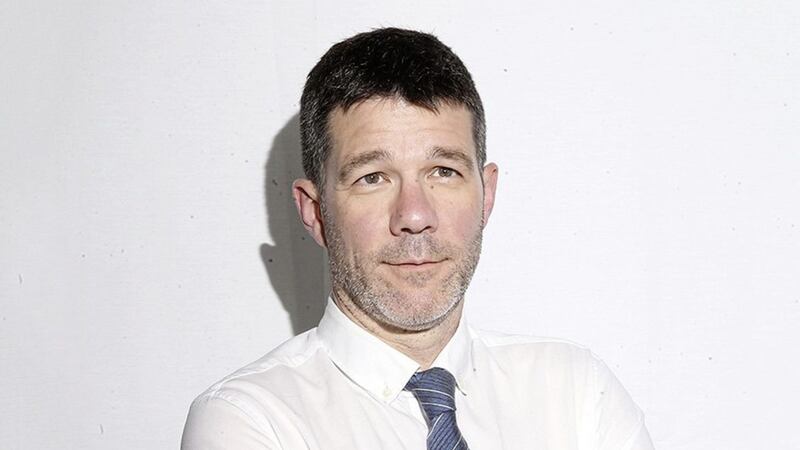Few in the media are fans of Northern Ireland’s libel laws, or the DUP’s refusal to reform them, or the unique tendency of Northern Ireland’s politicians to bring defamation cases. Yet it is fair to say there is widespread sympathy for DUP leader Arlene Foster after she was subjected to what can only be described as a libel Olympics, concerning false rumours online. Foster’s solicitors have given notice of action and even people who wish she would step down will be wishing her luck in boosting her retirement fund.
If these cases cause paranoiacs to ask why the media lost interest in libel reform, the answer is simple: the media has dealt with libel for centuries and knows how to do so; reform was aimed at new threats to academics, medical researchers and high-tech industries.
However, when universities and the business community were asked to support this, they chickened out as usual, expecting journalists to fight the battle for them.
As with Brexit, it will presumably take a disaster for backbones to be located.
**
With the Brexit date looming, watch out for po-faced statements from Northern Ireland’s universities about how international students will be scared away by hostile bureaucracy. Of course, both universities could help with this by no longer threatening to report students to the UK Visa and Immigration service the instant they fall behind on any of the enormous fees they are charged, although this rarely affects visas after one year of study. But sure, that’s just crazy talk.
**
The release of state papers from 1993 has unearthed the political genesis of the Ulster-Scots movement, with unionists making their first pleas for funding on the level of Irish. Fascinatingly, officials noted research then underway into the 400-page Ulster Dialect Dictionary, funded by the Department of Education, compiled by the Ulster Folk Museum and published in 1996 by the Oxford University Press. Despite having the leading academic of Ulster-Scots studies, Robert J Gregg, as a contributor, this project gave equal weight to Ulster dialect words of Irish, English and Scottish origin, in effect implying the existence of Ulster-Scots-Irish-English.
Perhaps this could be of assistance to current Stormont talks.
**
Councils in Northern Ireland have spent £136,000 since 2017 entering themselves for awards such as “Loo of the Year” and “Best Use of Social Media”, plus a further £13,000 hosting award ceremonies. Belfast, North Down and Antrim and Newtownabbey were by far the biggest spenders, at around £30,000 each.
Belfast City Council defending the cost as “an important part of maintaining motivation”.
This might be justified if the sums involved were not sufficient to fund more direct incentive schemes - 30 annual £1,000 bonuses would buy a lot of staff motivation.
But that would not help management burnish their credentials, for which awards are an excellent currency.
**
The Roddy McCorley Society, a republican group in west Belfast, has applied to have its collection of Troubles artefacts given museum status. This would open the way to official support. It should also spark debate on building a dedicated Troubles museum, a glaring omission in our tourist offering and more importantly our own digestion of the past. The Maze/Long Kesh site, while inconvenient for tourists, would be politically ideal. Disagreement over its proposed peace centre is how the DUP and Sinn Féin began falling out. A museum on the site would indicate they can work together again.
It would also be useful to have a history project both parties can agree on before the 2021 centenary of Northern Ireland, which easily has the potential to see them fall out all over again.
**
One of the great mysteries of Northern Ireland’s legal system is how taking drink or drugs is cited as an excuse in court, although the law is clear this should mean longer sentences. Somehow, barristers have picked up a message this defence will still work. A strong message to the contrary has now been sent during an assault trial in Downpatrick. Speaking to the accused’s barrister, Judge Geoffrey Millar said: “That he took drugs is a fact, not an excuse. It’s an aggravating factor, not a mitigating factor.”
It is striking that a judge has to make this basic point.
**
A bridge or tunnel to Scotland, viewed mainly as a unionist fantasy, is winning support on the other side of the North Channel among Scottish nationalists.
After Taoiseach Leo Varadkar diplomatically declined to rule a bridge out, Scotland’s SNP-backing National newspaper published another flurry of articles and letters in favour of the idea, or at least of conducting a high-level engineering assessment.
It seems that while the DUP sees the bridge as a UK trunk road, Scottish nationalists see it as an England bypass. More romantically, nationalists are attracted to it as a great national project of independence declaring to the world that Scotland has arrived, with that point of arrival being a post-Brexit Northern Ireland effectively within the EU.
Engineering aside, that is a lot of conflicting politics to make meet in the middle.









